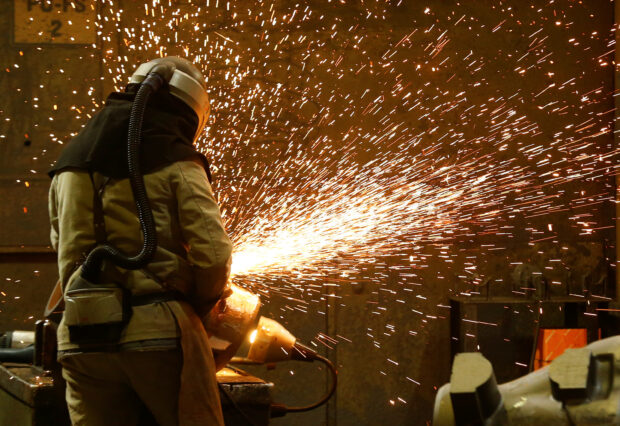
A steel worker grinds a steel cast at ‘Friedrich Wilhelms-Huette (FWH) Stahlguss’ steel casting firm in Muelheim an der Ruhr, Germany, April 2, 2022. REUTERS/Thilo Schmuelgen
BERLIN – Half of German companies are struggling to fill vacancies due to labor shortages, the DIHK Chamber of Commerce and Industry said on Wednesday, despite the stagnation of the euro zone’s largest economy.
Germany, like industrialized countries around the world, is facing deep labor shortages, particularly in skilled high-growth sectors.
The proportion of companies facing difficulties hiring was slightly down from the previous survey of 22,000 companies, falling to 50 percent from 53 percent in January.
“The skilled labor situation remains very critical,” said Achim Dercks, DIHK’s deputy chief executive.
According to the latest estimate, 1.8 million jobs remain unfilled in the German economy as a whole.
“This means that more than 90 billion euros in added value will be lost this year,” said Dercks. “That corresponds to more than 2 percent of gross domestic product.”
READ: As baby boomers retire, German businesses turn to robots
The survey showed that eight out of 10 companies expect negative consequences from labor shortages.
Aware of the struggle, the German government passed new legislation this year to help foreign workers establish themselves in Germany.
More than half of the companies see the recruitment of foreign labor and skilled workers as an option to secure skilled labor, the survey showed.


